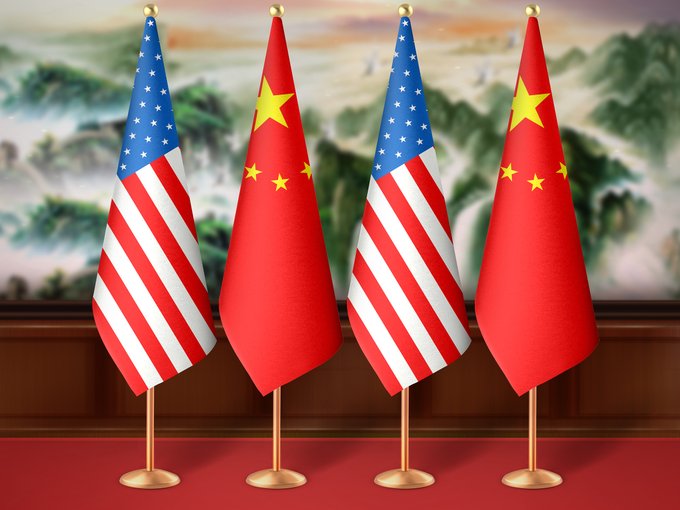 Cause for concern: The actual number of Malaysians who have fallen victim to job scams is unknown, although the Malaysian International Humanitarian Organisation, an NGO that assists in rescuing Malaysians from such scams, claims that there are at least 1,000 Malaysians in Myanmar alone.© Provided by The Star OnlineMalaysia is experiencing a “scamdemic” with victims being forced to commit online crimes under the threat of violence. International syndicates are also believed to have set up scam centres in Malaysia, saye a United Nations report following recent findings from a survey carried out by a group of academics on Malaysians’ awareness of the matter.
Cause for concern: The actual number of Malaysians who have fallen victim to job scams is unknown, although the Malaysian International Humanitarian Organisation, an NGO that assists in rescuing Malaysians from such scams, claims that there are at least 1,000 Malaysians in Myanmar alone.© Provided by The Star OnlineMalaysia is experiencing a “scamdemic” with victims being forced to commit online crimes under the threat of violence. International syndicates are also believed to have set up scam centres in Malaysia, saye a United Nations report following recent findings from a survey carried out by a group of academics on Malaysians’ awareness of the matter.
Coined by the United Nations Office on Drugs and Crime (UNODC) after the Covid-19 pandemic in 2021, the term “scamdemic” has gained traction as scam cases surge, particularly in countries like Cambodia, Myanmar and Laos.
In its latest policy brief, UNODC says international NGOs have identified over 40 nationalities of trafficking victims in scam parks in South-East Asia, including Malaysians.
These scam parks, a gathering of criminal organisations specialising in financial fraud and human trafficking, are known to deploy operatives who excel at running job scams, among others.
ALSO READ : ‘Greed and risky mindset lead to more victims’
While there is no accurate data on the number of victims trafficked for forced criminality, it is estimated that between 10,000 and 100,000 predominantly young men and women from Asia had been trafficked and forced to commit online scams and fraud, says the report.
The actual number of Malaysians who have fallen victim to job scams is unknown, although the Malaysian International Humanitarian Organisation, an NGO that assists in rescuing Malaysians from such scams, claims that there are at least 1,000 Malaysians in Myanmar alone.
At the recent parliament sitting, Deputy Foreign Minister Datuk Mohamad Alamin said 518 Malaysian victims of job scam syndicates had been rescued as of Nov 3, and that the ministry is identifying another 26 in Laukkaing, Myanmar.
In the same policy brief, UNODC also suggests that scam parks exist in Malaysia, following reports from trafficking victims who had escaped over the last three years. However, the report does not provide details on the existence of the scam parks.
“Since early 2021, an increasing number of stories started to emerge of trafficking victims escaping from scam compounds in countries such as Cambodia, Laos and Myanmar and even Malaysia,” says the report.
UNODC says concerns over citizens being trafficked and severely mistreated, primarily in scam compounds in the Golden Triangle (the area in which the borders of Myanmar, Thailand, and Laos meet), were also expressed to the body and other UN agencies by several governments in the region.
UNODC says the victims related similar stories of how they were lured by lucrative job offers, only to find themselves forced into modern-day slavery to work as scammers themselves. They tend to be working in casino complexes or highly guarded buildings.
“After travelling to or within the destination country, they were confined to large casino or hotel complexes, or other secure buildings tailored to harbour or confine victims, where they were forced, for up to 15 hours a day, to conduct online scams.
“These online scams and fraud, committed primarily by trafficked persons under duress, have defrauded thousands of scam victims around the world of, on average, US$169,000 per victim,” says the report.
Universiti Tunku Abdul Rahman’s Tun Tan Cheng Lock Centre for Social and Policy Studies chairman Dr Chin Yee Mun said it can be concluded that Malaysia is indeed experiencing a “scamdemic” following recent findings from a survey carried out by a group of academics on Malaysians’ awareness of the matter.
“Firstly, our survey shows that nearly 40% of the respondents have encountered scams, and about the same percentage have someone in their social circle who had undergone similar experiences,” he said.
“Secondly, we have similar experience or have someone in our social circle who encountered scammers or has been scammed.”
Universiti Teknologi Mara Perlis’ Dr Azhar Abdul Rahman said that although the number of Malaysians who remain trapped in scam parks is uncertain, there may be many more, judging from the continuous reports of rescued victims.
“These scammers are always prepared with their plans to entice the gullible with (jobs that offer) easy access to wealth,” said Azhar, who was part of the team that carried out the survey.
But Malaysians are not new to experiencing job scams, said crime analyst Kamal Affandi Hashim.
“Malaysia has long been suffering from this ‘scamdemic’. And Malaysia is not alone as the whole world is facing this problem.
“The only difference now is that this matter is being put under the spotlight. The scammers are also technologically savvy and sophisticated in reaching out to potential victims,” he said.
Related:
The grass is not always greener on the other side

Roshaidi (right) and his friend refused to work as scammers as told by the syndicate
Related stories:
So rampant, it’s become a ‘scamdemic’
‘Greed and risky mindset lead to more victims’
Government needs to do more against scammers
Scam parks: No promised land












